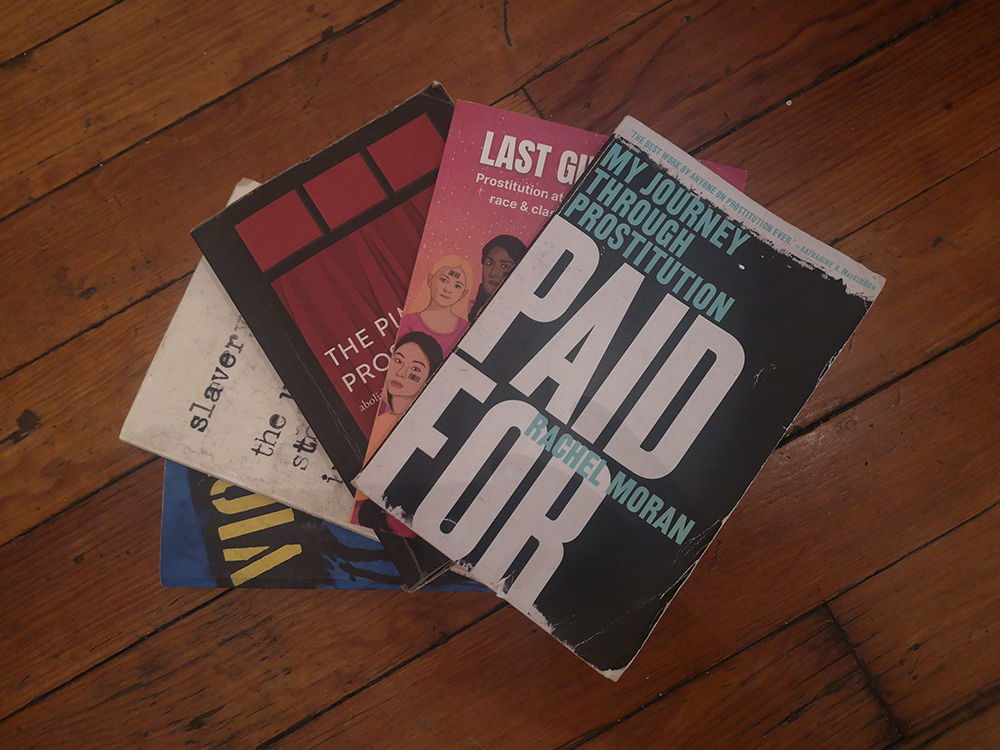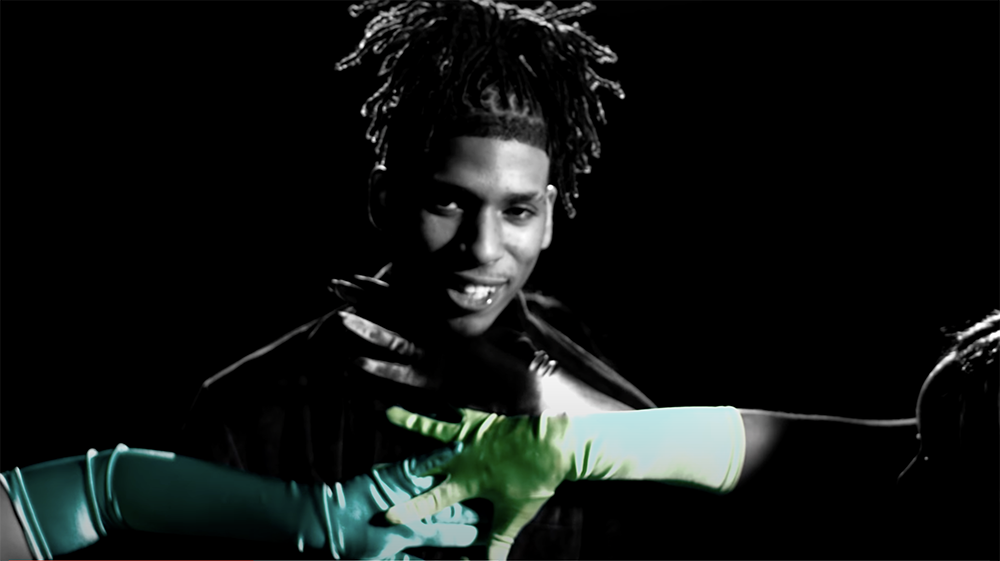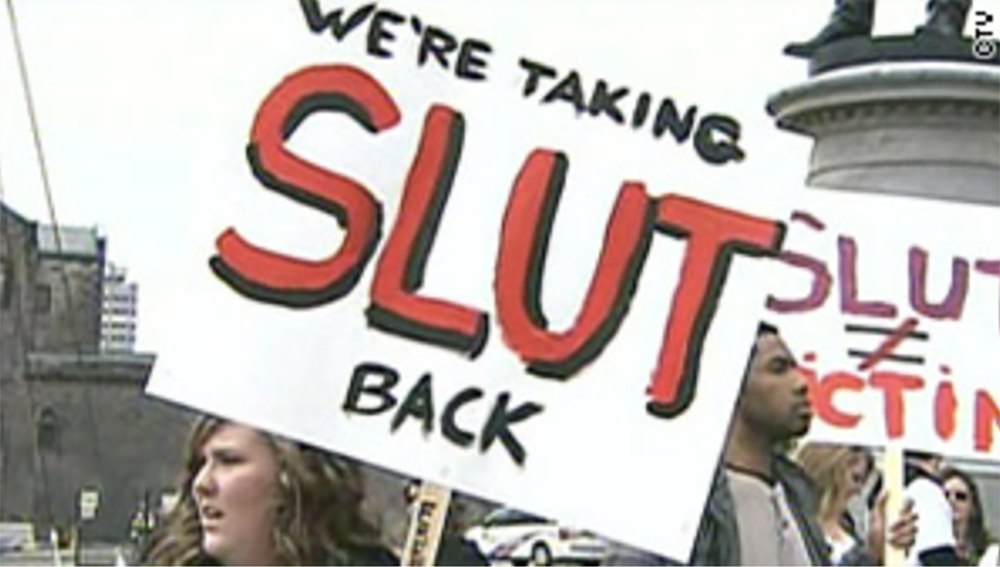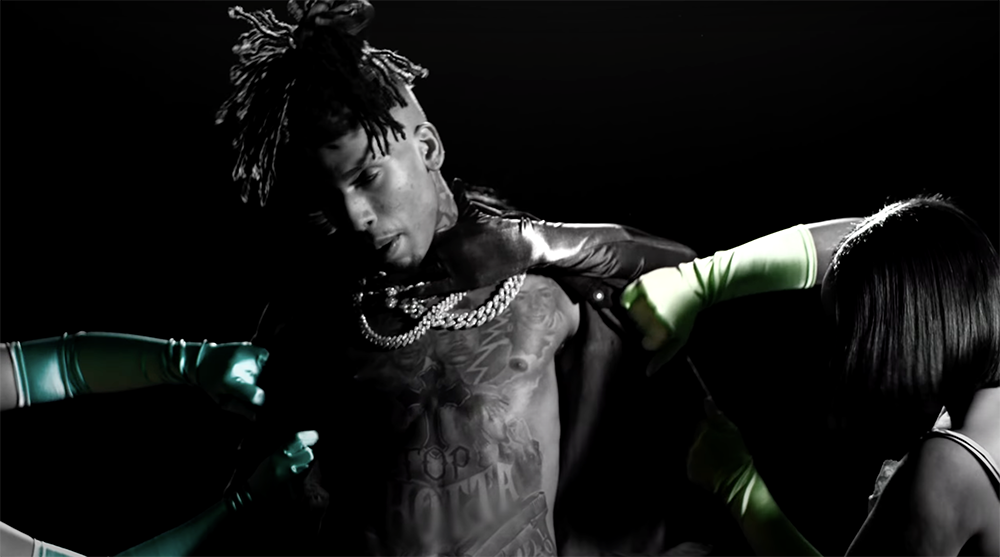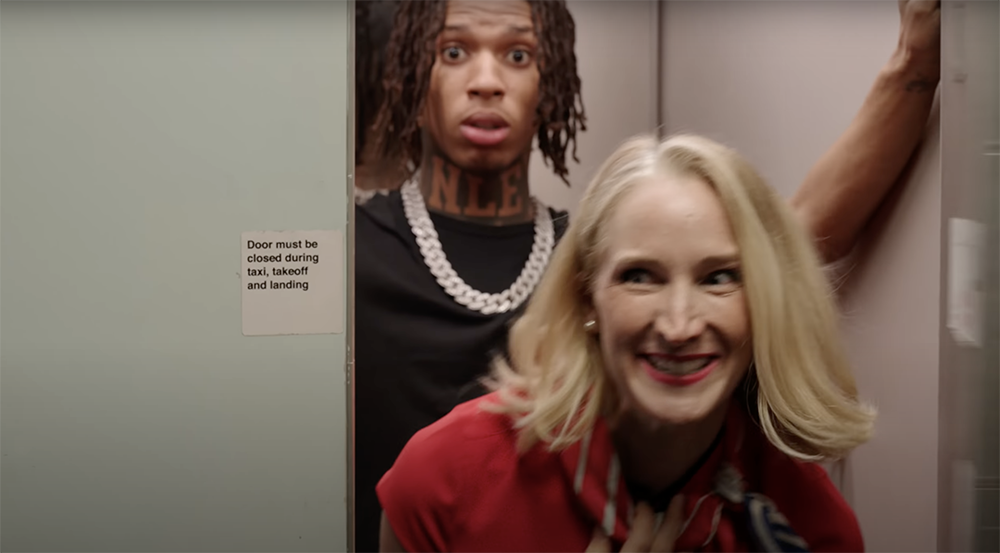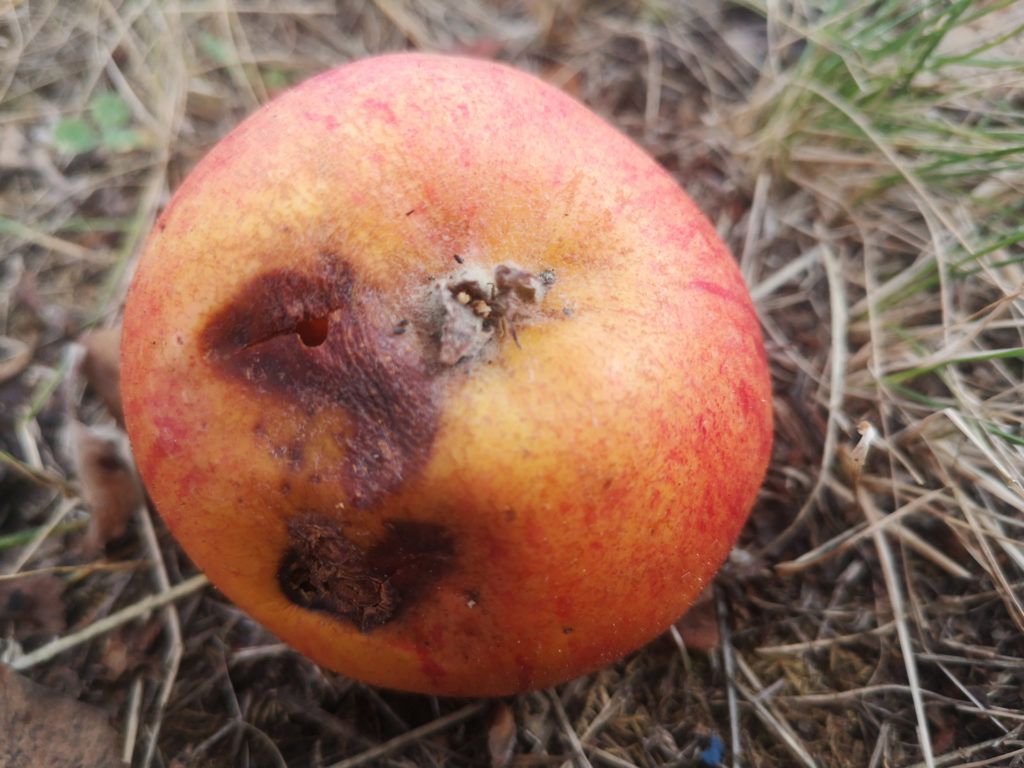
In 2022, I published my first book.
It’s called Victim. For those of you who don’t know about it, the subtitle is: A Feminist Manifesto from a Fierce Survivor. Some people asked me why I called it that, Victim, why I named my book, a manifesto no less, with a word that traditionally denotes weakness and defeat. I responded, as I still do: I named it with reality.
Okay, that still may not fully answer your question because: why is it a reality that a word conventionally equated with weakness has anything to do with strength and even triumph over trauma, as I named my North American book tour? That’s because, even if a person (usually a woman) is a survivor of sexual violence, we are still victims. We are changed. The violation and subsequent trauma never fully goes away. And this doesn’t have to be a bad thing; the same way that the word ‘victim’ isn’t necessarily a bad thing: both are reality. Like I say in Victim, as simultaneously a victim and a survivor, I am “[a]live in the wisdom of what I have survived. Fierce in not accepting what doesn’t have to be true.” (153) And this is certainly true. The fact that I am alive in the wisdom. Because I definitely know a creepy lecher when one leches on me. And I am fierce in not letting him know that it is true: you’re abusing power. Stop.
Last week, I needed help. From a man unfortunately: the financial advisor of my deceased father and now the one who manages my mother’s finances. I am, again unfortunately, one of the many people in the North American land of individualism and excessive personal boundaries, a person whose sister has estranged me. And, yes another unfortunately, she is also the executor of my mother’s will—and my mother isn’t doing well. Recently, I found out my sister could sell the house without my consent. I thought we were all equal: my brother, my sister and I; but, no, mimetic to the hierarchical culture we live in, we’re not. And I also found out—perhaps predictably—that she doesn’t want to lose her power.
I needed advice as to how I won’t lose my home.
The house that I have been living in for the majority of my life since 2016. The house and place that I am very attached to. I certainly wouldn’t have sought his advice if I knew he is an everyday lecher, though. What I mean by the nomenclature “An Everyday Lecher” is because, in patriarchy as a system of ingrained misogyny and power abuse, these kinds of men are everywhere, committing acts of what they construe as a bit of flirtatious fun. It may sound minor. But another “what’s-she-complaining-about?” But it’s not. Sexual harassment is connected to rape. The particular man doing the sexual harassing may not be a rapist, may never go that far; however, it should go without saying as the most obvious logic: everything is connected.

Here’s yet another tale of sexual harassment and power abuse,
in the banality of a Starbucks no less, sipping English Breakfast tea, backgrounded by an Indigo/Chapters, Canada’s most common book store, not to mention but another greedy corporation manspreading around neo-liberal land (re: capitalism on crack). The Everyday Lecher sat down and immediately felt that it was his right to reach across the table and start stroking my skin. He was a dear friend of my father’s after all (and I wonder what my father would have thought of that, the entitled stroking of his daughter’s skin, that is). More: as he stroked and I pulled away, as I was of course taken aback by this friend of my deceased father’s hand lunging across the table, his eyes clamped onto my chest and, laughing playfully, like a goofy Lex Luther (he is kind of a dork), he exclaimed: “I like your ample bosom!”
Okay, you may be thinking: “what’s she complaining about? Things could be so much worse!” Yes, you’re right! They could be. Like the all-out sexual assaults I have survived and been victimized by; like child sex slavery in Cambodia, Myanmar, Thailand, Mexico, Latin America, Africa and wherever another war-torn country is ripped open for a new batch of female vulnerability and male, entitled, violence (don’t get your backs up, men, you’re not all lechers, rapists and sex tourists). Yet, throughout the reading of this post, don’t forget the ‘everything-is-connected-of-course’ reality.
Then: (because I’ve had challenges with men and found myself in emotionally abusive relationships since the beginning of the string of my relationships with emotionally abusive men due to the emotional abuse inflicted on me in childhood by my father who, himself, was a victim of sexual assault and unresolved trauma and, subsequently, took it out on me, the child he saw the most of himself in), I am quite often single, having just survived another emotionally abusive relationship. Even though the conversation that day in one of the 32,660 Starbucks in the world was supposed to be about probate fees and a strategy to keep my sister from having the ability to sell the house out from under me, the Everyday Lecher’s conversational priority was to comment, every few minutes on how ‘dateable’ I am while continuing to reach across the table and stroke my skin, as he called it, not my arm, but my skin: “I like to stroke your skin,” he kept saying, starting to make me feel very uncomfortable, yet still always surprised when behaviour which shouldn’t be common at all happens in the first place.
I put on my jacket.
Because I was cold. And, I’m not sure but maybe subconsciously, because I wanted to cover myself, make my skin inaccessible to him. I have been afraid of men all of my life. This is because my dad was scary. It’s lessening now. But it’s still there, so I don’t process right away, especially when it’s a dear friend of your deceased father’s and you are kind of shocked this kind of thing would happen in the first place. Again.
“I don’t like it that you put your coat on. I can’t touch your skin now,” he lechered from across just another of millions of round, grey Starbucks tables. My skin started to crawl; the all too familiar anxiety began to roil in the pit of my stomach. And yet, I was there to get some answers, a possible solution as to how to save the house that heals me, how to save my father’s orchard (we had forgiveness at the end of his life—yes, a lot of context to fill you in on like everything in life— which makes the orchard even more precious to me;) my flower garden filled with sweet peas every summer; so many trees that will most likely be cut down by soulless capitalists when the house sells in order to build a monstrosity as monetarily profitably as possible; the beach that has calmed me since childhood with the clearest water where I swim every summer. As I swim, like just ten days ago now, roll around like a euphoric seal, as I float with arms outstretched and am a part of purest water and the bluest sky, I exclaim to myself and to other blissed out swimmers:
“The water is as crystal silk!”
Whenever I am away from this sea and not feeling well, I visualize its expanse, and I feel better. Always. I can’t lose this house. This place. This land. I’ll do virtually anything to keep it, even put up with an everyday-lecher/father’s-financial-advisor’s entitled, creepy advances.

The meeting ends.
There is a sort of possible solution (which ended up didn’t work out and that’s another story about first world individualism, lack of empathy, and more possible familial estrangement). Because he apparently idolized my father, he wants to see my dad’s bicycle, the one I ride when I’m in Canada. Ridiculously—yes, trauma can impel us to do ridiculous, albeit justifiable, things—I became a child again, that little girl who was abused by her father, and I tell the Everyday Lecher about the sweet peas in my garden that grew so tall this year they are a part of the apple tree. He made a comment about my ‘sweet pea’—an obvious clitoral allusion, even without the skin stroking and bosom staring previous. Yuck! The sweet pea comment would be cute coming from a real boyfriend, but from your dad’s investment guy? Yuck! And connecting my deific sweet peas with his lechery? “Men suck!” as my good friend and comrade in calling out sexual violence in all of its forms, Catherine Owen, said when I told her.
The next morning, I had to say something, of course. I texted:
“Don’t feel entitled to touch any part of me and make sexual comments again.” He responded:
“I shouldn’t have been so familial,” his response. Familial?! That’s even creepier! I had to phone him:
“Your behaviour was far from ‘familial.’ Would you insist on stroking your niece’s skin? Comment on her breasts? And then, as the climax of this apparently harmless family affair, make a clitoral innuendo?” He was shocked, the perpetrator became the victim in his patriarchal mind. He went on and on about how he would NEVER do that (the sweet pea part he found particularly ‘hurtful’). His voice was rising with horror and hurt. You did. I stated. I have been leched on by enough men in my 56 years to know a sexual innuendo when I am assaulted by one. And yes, like all of us who have lived through sexual violence, I have PTSD. It surfaced because of this everyday seemingly benign sexual violence from across but another Starbucks table. No thanks.
In the end, the Everyday Lecher couldn’t respond to my familial rebuttal. How could he? My undermining of his diminishment of sexual harassment to some kind of familial affection rendered him speechless. The object of his abuse of power had made him ridiculous and, hopefully, deep down, to himself as well.
He didn’t help me as much anymore, predictably. All of the assistance he’d promised and empathy he’d given during the meeting disappeared. And, he couldn’t look me in the eye when he came over to give my mom an update on her investments.

Epilogue:
It’s logical that victimhood never fully goes away. It’s logical, too, that we are survivors because we have survived, we are strong and we live with and do not allow the undeniable change we experience by being victimized defeat us. It’s logical that PTSD raises its re-traumatized head when we are assaulted again—even if it’s just some unconsented to skin-touching by a man who was one of your dad’s best friends and not being shoved against a wall or onto a bed or drugged and abducted and raped.
But it doesn’t have to be logical for men to be entitled to touch us, make lascivious comments all in good fun, excuse their power abuse as mere familial affection (I can’t help but wonder if he treats his niece in the same ‘familial’ fashion). It doesn’t have to be logical that we are exaggerating, making something out of nothing, maybe even making it all up. No. Such enculturated-male-in-patriarchy-entitlement that is embedded into the heads of men in positions of power can and must, someday, make no sense. Let’s call them all out. Let’s render all of their justifications and excuses ridiculous.

Me in my beloved garden in Lantzville BC. Where the sweet peas meet the apple trees xoxoxoxoox



